September 23, 2021
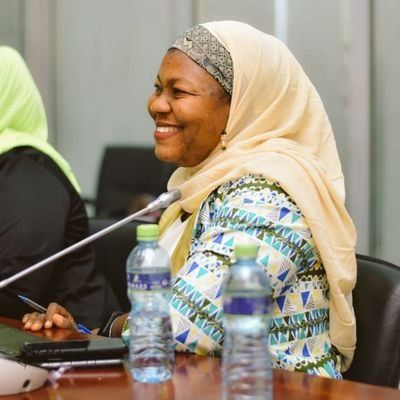
A fellow of the Centre for Social Justice (CSJ), Bashiratu Kamal Muslim has proposed that the Minister of Gender, Children and Social Protection be made a Cabinet Minister.
This, she explained is as a way of ensuring that issues related to gender and the marginalized in society are given the needed attention.
“The absence of the Gender Minister in cabinet means that it’s a lot more difficult to bring certain issues onto the agenda” she said at a webinar to end this year’s International Women’s Day celebrations under the theme: ‘Celebrating Women in Leadership in a Pandemic’.
The webinar, sought to examine how women leaders from various sections of society are coping with the pandemic, as well as their reflections on what could be done to help women and society as a whole cope better in this and future pandemics.
Panelists included, Kathleen Addy, Deputy Chairperson of the National Commission for Civic Education, Dr. Hawa Malechi, Obstetrician and Gyneacologist, Mercy Needjan, President of the Greater Accra Markets Association, Joyce Bawah Mogtari, lawyer and politician and Bashiratu Kamal Muslim, CSJ Council member and Fellow for Gender and Social Inclusion.
Dr. Amanda Coffie, Council member of the CSJ and co-moderator of the webinar said that the panel is a reflection of the various sectors within which women hold leadership and have helped steer affairs through the crisis.
Bashiratu Kamal Muslim and Joyce Bawah Mogtari, in their submissions called for greater participation of women in the political space, and noted that women were underrepresented in the President’s Ministerial appointments with only one out of 16 Regional Ministers being a woman.
Kathleen Addy, Deputy Chair of the NCCE said that her organization has worked tirelessly to educate Ghanaians at the national and local level on how to protect themselves from the COVID-19 virus.
Credit; www.myjoyonline.com
Recent News
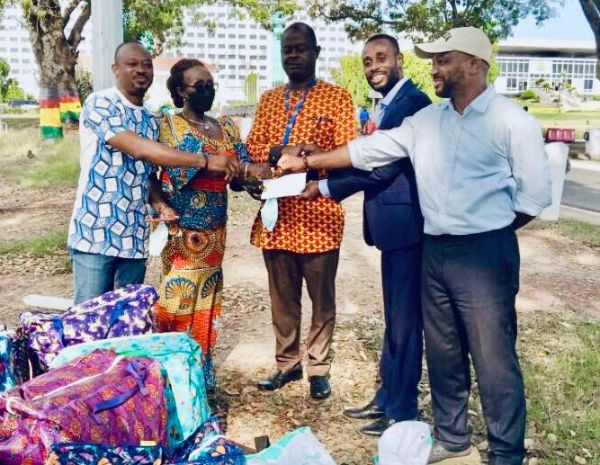
A CSJ delegation led by Comrades Philip Zumanu, Nii Armah Addy and Robert Dela Mawuenyegah made the presentation on December 2, 2021 to the Members of Parliament for Ketu South and Anlo Constituencies who received the donation on behalf of the people at a short ceremony at the Parliament House in Accra.
The move, according to the Centre, was a token gesture to help alleviate the plight of residents who lost livelihoods and properties to tidal waves in Keta and its surrounding areas last month.
The donation was made through generous voluntary contributions from members, experts and Fellows of the Centre for Social Justice.
“We appreciate this kind gesture from CSJ. We would also like to use the CSJ platform to appeal to other benevolent Ghanaians to support the completion of a facility to serve as a place of shelter for the displaced residents”, said the MP for Ketu South, Hon. Abla Dzifa Gomashie, as she received the donation.
On his part, Hon. Richard Kwame Sefe, MP for the Anlo Constituency appealed to the good people of Ghana to support him to build a school for the people of Fuveme in the Anlo Constituency in the Volta Region.
About 3,000 people in the Keta Municipality were rendered homeless after tidal waves swept through their homes on Sunday, November 7. Communities such as Abutiakope, Kedzikope and Keta Central were largely affected as affected homeless residents were left with nothing to salvage.
Affected residents, mainly children and women, had their residential abodes completely destroyed by the tidal waves.
Credit: www.newswatchgh.com
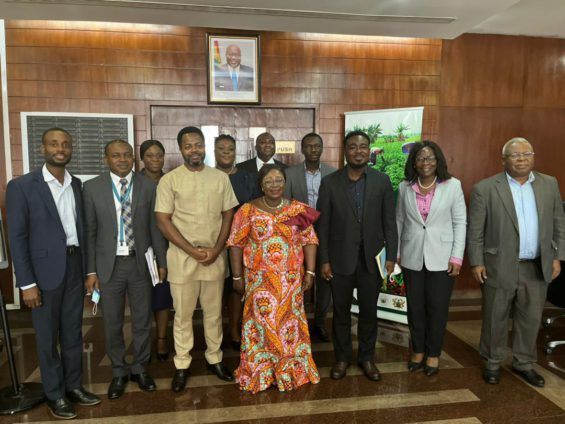
She made the comments when she received a delegation from the Centre for Social Justice (CSJ) at her office at the Jubilee House in Accra.
The CSJ presented the Chief of Staff with a copy of a judgment debt report prepared by the Finance and Economy Pillar of the Centre.
The report which is entitled “A 20-year review of judgment debt payments in Ghana: impact, causes and remedies” catalogs the incidence of Judgment debts in Ghana from 2000 to 2019.
Present at the meeting were representatives of the CSJ, the Chief of Staff and her deputy in charge of operations, Chief Director at the Office of the Chief of Staff, Deputy AG & Minister for Justice and the Directors of Budget and Legal Departments of the Ministry of Finance.
Presenting the report, the Council Chairman of the CSJ, Dr. Sodzi Sodzi-Tettey said that the report details the causes of judgment debts over the period, the various categories of the judgment debts, as well as offering recommendations for the avoidance of such incidents in future.
He noted that funds lost to the state due to the payment of such debts are resources that could otherwise have been utilized for national development.
Dr. Sodzi-Tettey recommended a bipartisan process leading to a government judgment debt framework with specifications for how governments enter into, continue or abrogate contracts entered into by predecessor governments, with judgment debts associated with political transitions accounting for over 70% of the reviewed judgment debts.
The CSJ also recommended an inter-ministerial committee of the Finance Ministry and the Attorney General’s Departments to take stock of all judgment debts and work collaboratively to either fight them robustly in Court or arrange feasible payment terms as needed.
Dr. Sodzi-Tettey recommended clear policy guidelines for public officials surcharged in the Auditor General’s report for their roles in causing judgment debts to reimburse the Consolidated Funds and for updates on the state of such reimbursements to be included in each year’s Auditor General’s report as an accountability measure.
The Deputy AG & Minister for Justice in charge of Civil Cases, Diana Asonaba-Dapaah informed the meeting that her office had put in place several measures since 2016 to reduce the award of Judgment debts, including the assignment of five senior lawyers to key ministries to help in the thorough review of contracts before signing.
Madam Asonaba-Dapaah also mentioned government’s strategy to depart from the practice of using inexperienced lawyers rather than senior lawyers to contest judgment debt cases.
She lauded the decision of the President to create two deputies for the Attorney General, in charge of Civil and Criminal cases, as a clear sign of the government’s seriousness in tackling the menace of judgment debts with the Deputy in charge of Civil cases exercising strict oversight over judgment debt cases.
Finance Ministry officials also bemoaned the fact that in most instances, they are the last to hear of these cases after Courts have ruled and government accounts are being garnisheed. As a result, they have become even more proactive in making strong legal representations as soon as they hear of these judgment debt cases in court.
The Chief of Staff described CSOs as important actors in any democracy that play a critical role in ensuring government accountability and also contribute to policy formulation and implementation.
She however charged CSOs to also applaud government when it is on the right track, as a way of encouraging it. She requested the CSJ to track government progress on actions to curb the judgment debt issue.
Source: www.myjoyonline.com
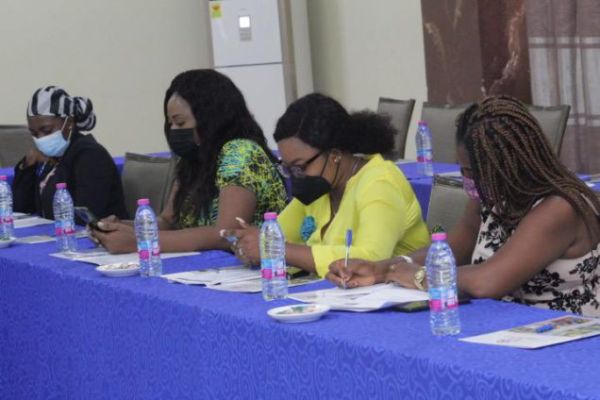
The workshop was attended by mid-level professionals, gender activists, academics and media practitioners from across the country.
Modules undertaken by participants included gender concepts, gender and power, legislations and policies protecting women in Ghana, sexual and gender-based violence and feminist concepts.
The lead facilitator of the workshop Bashiratu Kamal noted the key role of the media in highlighting and educating the public on gender issues.
She observed that no media house in the country has a gender policy, which inhibits their ability to play a critical role in the mainstreaming of gender issues.
Programmes Coordinator at Friedrich Erbert Stiftung, Michael Abbey, in his opening remarks briefed participants about the work of his organization in Ghana.
He expressed the hope that after the workshop, participants would champion the mainstreaming of gender issues in their various organizations.
Council Chair of the Centre for Social Justice Dr. Sodzi Sodzi-Tettey, reflected on the importance of such initiatives in bringing gender issues to the top of the national agenda.
He looked forward to further collaborations with Friedrich Erbert Stiftung.
At the end of the workshop, participants identified various actions for implementation in their respective organizations. FES and the CSJ, plan to monitor the group for the purposes of assessing the implementation status of the action items.
Credit: www.myjoyonline.com
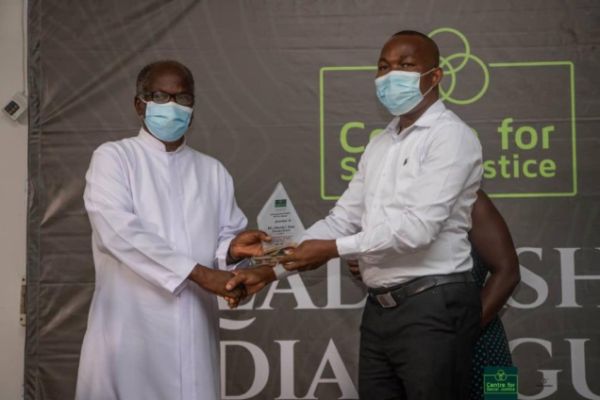
The award was presented during the 8th in a series of Leadership Dialogue platforms organised by the think tanks, under the theme, ‘Uprooting Public Sector and Political Corruption in Ghana’.
The citation in part read; “Daniel Yaw Domelevo, your unwavering dedication and hard work to public service and commitment to the anti-corruption campaign put you head and shoulder above the rest.
“Your peerless role as the Auditor-in-chief for government drew bipartisan praise across the political aisle. Your unfettered resolve to ensure value for money is second to none. Today, you are celebrated for the set of innovative reforms that restored public audit to its twin mandate of independence and relevance.
“You will be fondly remembered as an unapologetic outlier, a trailblazer of our time. During your term, public bureaucracy and accountability were brought to every Ghanaian doorstep”.
The award was presented by Dr Amanda Coffie, Council member of the CSJ and King Carl Duho Tornam of IMANI Ghana.
The award was received by the brother of the recipient Reverend Stephen Domelevo. In his acceptance speech Reverend Domelevo expressed the sincere gratitude of the former Auditor General who is currently working outside Ghana.
He encouraged anti-corruption crusaders to be courageous in the discharge of their duties regardless of the many obstacles they are bound to face.
The key speakers at the function were Justice Yaw Appau, a Justice of the Supreme Court; Mary Awelana Addah, Programmes Manager at the Ghana Integrity Initiative and Manasseh Azure Awuni, Investigative Journalist and Editor in Chief of the Fourth Estate, Media Foundation for West Africa.
